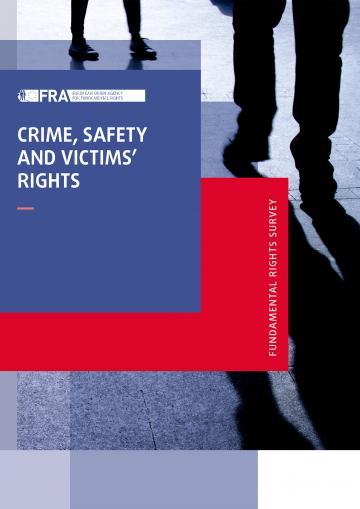FRA opinion 2
Women experience physical violence disproportionately at home, while men often experience violence in public settings.
EU Member States should – in addition to measures needed to encourage and empower these victims to report incidents of crime (see opinion 5) – consider introducing specific measures to ensure targeted support for victims of violence in the domestic sphere. This is needed to ensure that the rights guaranteed by the Victims’ Rights Directive are effective in practice for those – disproportionately women – who experience violence in the home, from family members or relatives, and who therefore struggle to obtain support to break the cycle of violence, and to access justice. This can include training and specific guidelines for professionals who are in contact with victims (such as healthcare professionals or teachers) on how to detect crime that occurs in the home, and how to deal with it appropriately. In this context, the European Commission is also encouraged to draw on the expertise and use the potential of the newly established Victims’ Rights Platform.
The EU and all EU Member States that have not yet done so are encouraged to ratify the Council of Europe Convention on preventing and combating violence against women and domestic violence (Istanbul Convention). In parallel, EU institutions and Member States are encouraged to draw on data from the Fundamental Rights Survey, and FRA’s previous survey on violence against women, when exploring gaps in existing law, alongside ways to more effectively address gender-based violence through the enactment of current law and policy – in alignment with the Commission’s plan of action set out in the EU strategy on victims’ rights as well as the Gender Equality Strategy 2020–2025.
Recognising men’s disproportionate role as perpetrators of violence, and in line with Article 84 of the Treaty on the Functioning of the European Union, on crime prevention, the EU should promote and support Member State action in the field of crime prevention. Such action would aim at introducing measures to educate boys and young men in a way that enables them to resolve conflicts without violence or abusive conduct, and to treat girls and women – as well as other boys and men – with respect, drawing on relevant human rights values including human dignity, equality and non-discrimination.
Member States are encouraged to develop criminal sanctions that have a potential to rehabilitate male offenders and to support them in developing as accountable and respectful persons. This could include anti-violence training that pays due attention to gender roles and stereotypes with respect to male aggression. Those Member States that have not done so already are encouraged to consider introducing gender-sensitive anti-violence training as a criminal sanction, with the aim of reducing rates of repeat victimisation, in line with Article 18 of the Victims’ Rights Directive.
